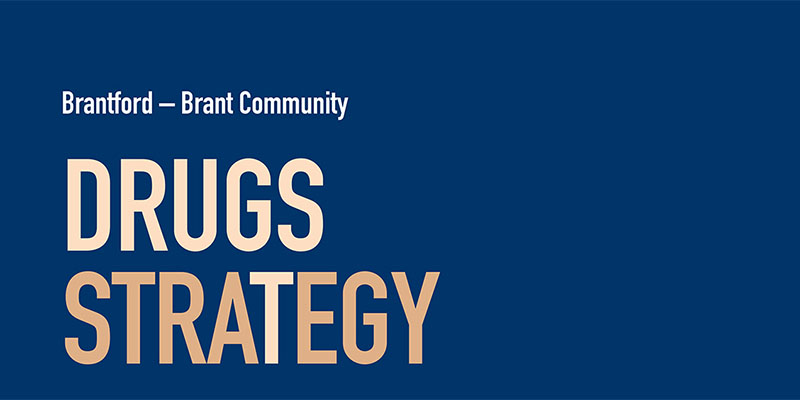Laurier researcher to measure the impact of the Brantford Downtown Outreach Team pilot program

Brantford, ON – Since July, the Brantford Downtown Outreach Team (BDOT) has been focused on outreach with people in the downtown core who may be experiencing addiction, mental health or housing challenges to connect them with the support services they need. Wilfrid Laurier University has been an important partner throughout the project and is working with the City of Brantford to evaluate the impact of the pilot program.
Assistant Professor James Popham, a member of Laurier’s Department of Criminology, is leading the evaluation, which received funding through the Social Sciences and Humanities Research Council of Canada. The research will include interviews with a variety of stakeholders as well as analysis of data from partner agencies, including St. Leonard’s Community Services, Brantford Police Service, Grand River Community Health Care Centre and the City of Brantford.
“We’re going to be listening to voices of people connected with the program – the administration, outreach team members and some of the individuals they’ve worked with, as well as local organizations such as the Downtown Brantford Business Improvement Area,” said Popham. “We’re trying to build a holistic perspective of how the BDOT has impacted the community beyond strictly looking at numbers.”
The BDOT consists of an outreach co-ordinator, nurse practitioner, concurrent disorders counsellor and peer support worker, who typically work in pairs to proactively reach out to marginalized people. Other communities across Canada and globally have implemented similar outreach programs with the goal of connecting people who may not otherwise seek support on their own with the help they need.
“Supporting a safe and welcoming downtown is a priority for city staff and for council. Part of these efforts is to connect vulnerable people to the help they need,” said Aaron Wallace, director of corporate initiatives and community strategies for the City of Brantford. “Outreach teams become more effective over the long term because they need time to develop trust and relationships with disconnected individuals. This partnership with Laurier faculty is critical to assessing this program’s impact and making the case for sustainable funding.”
The evaluation will use anonymized data to measure changes to indicators such as calls for policing and other emergency services, arrests, and people using services such as addiction recovery programs. Researchers will also observe the BDOT in action and conduct interviews and focus groups.
“Programs of this nature are a non-aggressive way of connecting people with different services they may not be aware of, particularly if they don’t have regular access to technology,” said Popham. “They also reduce the use of emergency services resources in terms of costs and personnel.”
Popham has worked closely with the Brantford community in the five years he has been at Laurier. In 2017, he partnered with the city on a public conference about big data and its use by municipalities, and in 2017/18, he worked with the Brant Community Foundation to develop the Vital Signs report, which presented measurements on 10 key community vitality indicators. He is also the community research liaison for Laurier’s Centre for Research on Security Practices. At least one graduate student will work on the evaluation with him.
The one-year BDOT pilot program was funded through the City of Brantford’s portion of casino revenue, intended to support social programs and community projects.
– 30 –
Contact:
James Popham, Assistant Professor
Department of Criminology, Wilfrid Laurier University
519.756.8228 x5631 or jpopham@wlu.ca
Maria Visocchi, Director
Communications and Community Engagement, City of Brantford
519.759.4150 x5754 or mvisocchi@brantford.ca








 Subscribe to this Page
Subscribe to this Page